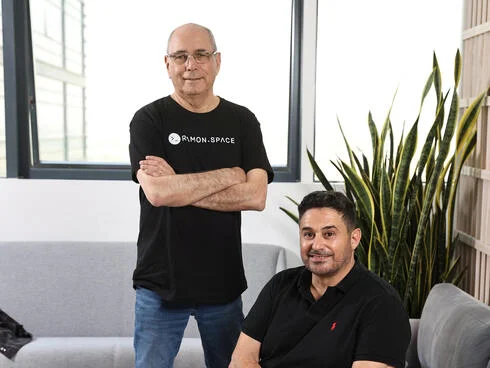
Ramon.Space Secures $70M Deal with Eutelsat: A Leap Towards Software-Defined Satellites
Ramon.Space, an Israeli space-tech firm, has clinched a landmark deal with European satellite giant Eutelsat OneWeb, marking a significant step in the evolving space race. The agreement, estimated to generate $70 million in revenue over the next three years, positions Ramon.Space at the forefront of the shift towards software-defined satellites. This move underscores the growing importance of on-board data processing in space, driven by the commercial space boom and geopolitical dynamics.
The Deal: A Game Changer for Satellite Technology
The contract will see Ramon.Space supplying advanced digital communication channelizer systems for at least 70 of Eutelsat OneWeb's upcoming satellites. These systems, based on Ramon.Space’s NuComm product line, are set to replace the analog channelizers in the current constellation. According to Ramon.Space CEO Avi Shabtai, this upgrade will enable Eutelsat OneWeb to transition to a fully software-defined network, allowing for in-orbit updates and greater flexibility.

Why This Matters: Efficiency, Speed, and Geopolitical Strategy
Traditionally, satellites have collected data and beamed it back to Earth for processing. Ramon.Space’s technology flips this model, allowing data to be processed directly on board the satellite. This dramatically improves efficiency and speed, critical in an era where the volume of space-generated data is exploding thanks to companies like SpaceX and Blue Origin. The ability to process data in space could also pave the way for 5G connectivity directly from space, expanding global coverage.
Moreover, the Eutelsat-Ramon.Space partnership is a strategic move for Europe. As the rise of SpaceX intensifies the global space race, European nations are keen to reduce their dependence on American networks. Eutelsat’s acquisition of OneWeb, formerly backed by the British government, underscores this ambition. By partnering with Ramon.Space, Eutelsat is solidifying its position in the satellite communications sector.
The Technology Behind the Deal
Ramon.Space's digital channelizers boast features like digital filtering, any-to-any switching, and in-orbit programmability. These capabilities are crucial for introducing advanced network management tools, potentially powered by artificial intelligence (AI). As Avi Shabtai explains, “When you move into the digital domain, channelizers can do much more. Now you can start writing software onto it and adding additional features, capabilities that do not exist in analog channelizers.” This digitalization is key to the OneWeb constellation’s future and its compatibility with initiatives like Europe’s IRIS² sovereign multi-orbit broadband constellation, slated for service in 2031.
Looking Ahead: Future of Space Computing
This deal is more than just a financial boost for Ramon.Space; it’s a validation of its vision to become a dominant player in providing computing infrastructure for satellite constellations. The company aims to equip satellites with the ability to perform AI and machine learning in orbit, making them smarter, more autonomous, and capable of advanced digital processing.
What are the broader implications of this trend toward software-defined satellites? How will this technology reshape the future of space exploration and communication? Share your thoughts in the comments below and join the conversation.